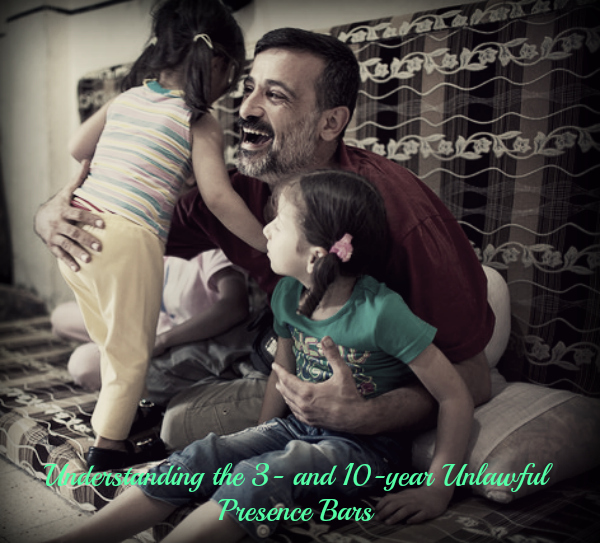For persons who have entered the United States illegally or who have accrued unlawful presence after having overstayed their visa, the possibility of obtaining lawful permanent residence (a green card) is very limited. In the United States there are generally two ways to adjust status to permanent residence. With few exceptions, a green card may generally be obtained through employment-based sponsorship, or family sponsorship based on a qualifying family relationship, such as a U.S. Citizen or Legal Permanent Resident relative. Unlawful presence is a very serious immigration offense that is subject to punishment depending on the amount of time a person has accrued unlawful presence in the United States.
Undocumented immigrants who accrue unlawful presence in the United States, and subsequently leave the country, and attempt to re-enter the United States lawfully, may be subject to either a 3- or 10-year bar, based on the amount of time they have accrued unlawful presence in the United States. Specifically, under the Immigration and Nationality Action Section §212(a)(9)(B)(i)(I) a person who has accrued more than 180 days of unlawful presence in the United States, is subject to a 3-year bar automatically triggered once the person departs the United States. The bar would thereby prevent a person from being re-admitted into the United States, depending on the amount of time they were previously unlawfully present in the country. Similarly, under the Immigration and Nationality Act §212(a)(9)(B)(i)(II), a person who has accrued one year or more of unlawful presence in the United States, is subject to a 10-year bar preventing a person from being re-admitted to the United States, once they have departed from the United States.
 Visa Lawyer Blog
Visa Lawyer Blog


